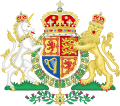History
In modern times, most judges appointed as Lord Justice Clerk later become Lord President of the Court of Session.
Originally clericus justiciarie or Clerk to the Court of Justiciary, the counterpart in the criminal courts of the Lord Clerk Register, the status of the office increased over time and the Justice-Clerk came to claim a seat on the Bench by practice and custom. This was recognised by the Privy Council of Scotland in 1663 and the Lord Justice Clerk became the effective head of the reformed High Court of Justiciary in 1672 when the court was reconstituted. The Lord Justice Clerk now rarely presides at criminal trials in the High Court, with most of their time being spent dealing with civil and criminal appeals.
The Lord Justice Clerk has the title in both the Court of Session and the High Court of Justiciary and, as President of the Second Division of the Inner House, is in charge of the Second Division of Judges of the Inner House of the Court of Session. The office is one of the Great Officers of State of Scotland.
This page is based on this
Wikipedia article Text is available under the
CC BY-SA 4.0 license; additional terms may apply.
Images, videos and audio are available under their respective licenses.




